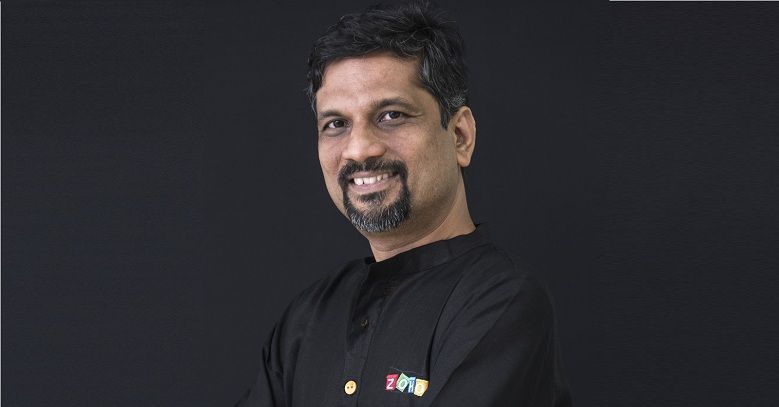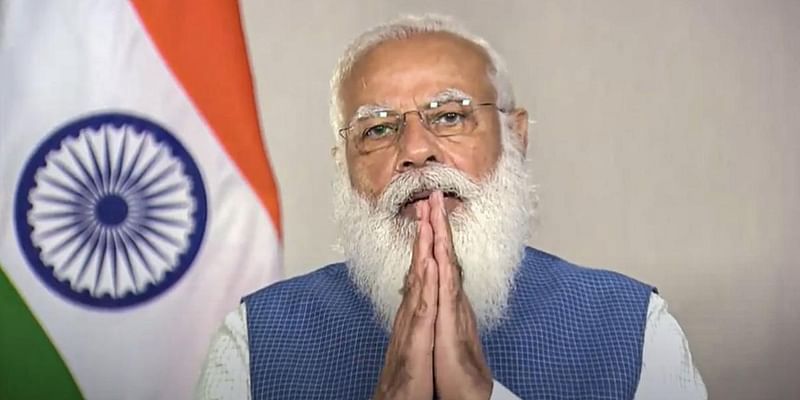It’s time for startups to optimise costs, increase runway: Aalesh Avlani of Samyakth Capital
Aalesh Avlani, Co-founder of VC fund Samyakth Capital, says it is important for startups to put cash generation and unit economics above growth during a crisis.
The coronavirus pandemic has got startups across the globe thinking about how investments will pan out. Will venture capitalists stick to their previous investment thesis or will their sentiments change once things go back to normal?
In a conversation with Aalesh Avlani, Co-founder of Mumbai-based venture capital fund Samyakth Capital, YourStory discussed the VC’s journey so far, its investment thesis, and investor sentiments amid the COVID-19 pandemic.

Aalesh Avlani, Co-founder of Samyakth Capital
Samyakth Capital is a hybrid growth fund, investing in emerging asset classes. Founded in April 2017 by Aalesh Avlani, Anuj Golecha, Gaurav Gandhi, and Rishabh Golchha, Samyakth Capital also provides expansion support to startups. It offers debt and equity financing options, by syndicating with other investment groups. Family offices from Chhattisgarh, Hyderabad and Mumbai are aligned with the fund.
So far, Samyakth Capital has made more than 35 investments across concept to Series C phases. It has invested in startups including furniture and appliances rental marketplace , FMCG brand Lo!, fintech startup , car financing startup , home rental marketplace , and voice AI platform .
Other companies in its portfolio include facial recognition technology startup Mirror.AI, social commerce platform , personal care startup , financial services company Kredent InfoEdge, Latin-America based Keynua, sports company Global Esports, and analytics company Rankz, among others.
The journey so far
An alumnus of Questrom School of Business, Boston University, Aalesh worked as a private equity analyst at SEI in the US, before returning to India in 2017.
“Working on large-sized deals in a more mature market like the US made me realise how nascent the Indian startup ecosystem was, in comparison,” Aalesh says.
In June 2017, Aalesh co-founded Samyakth Capital along with the other three co-founders. “The idea of working closely with like-minded entrepreneurs and learning from them worked as a major motivation for me and I knew this could only be possible while working as a VC,” he says.
Aalesh says the Samyakth Capital journey is very similar to that of any other startup - involving processes like fundraising and operations. “No day is similar as we get about five new deals every day and I don’t think such learning would have been possible otherwise,” he says.

Team at Samyakth Capital
The investment thesis
Samyakth Capital was founded to invest in both growth-stage companies and cash-generating businesses. It usually invests at an early stage (pre-Series A or Series A) as equity investors. Post this, the VC provides debt via structured debt transactions, usually aimed at rapid growth and expansion.
“The aim is to help portfolio companies at multiple stages of their fundraising journey,” Aalesh says. He has personally invested in about 39 companies in the last three years.
Aalesh says one of Samyakth Capital ’s biggest and earliest investments was in hair transplant clinic Assure Clinics. It invested in Assure when it was operating out of only one clinic; today, it has eight centres across the country.
He says, “A portion of the capital is focused on early-stage companies where we provide not only capital, but also guidance in improving tech capabilities and strategic development. With these companies, we come in at seed or pre-Series A stage,” Aalesh says.
Additionally, Samyakth Capital also provides structured debt to companies. This usually happens when a company has passed its Series A or B rounds of funding, allowing the VC fund to grow along with the company.
The VC fund seems to mostly invest in companies serving millennials (RentoMojo, ZiffyHomes, OTO, Lo!, etc). On this, Aalesh says millennials have become the target audience for most companies, as India becomes the second largest online market in the world.
“Growing millennial adoption opened up several avenues such as streaming and e-sports, which was one of the primary reasons for our investment in Global Esports, an e-sports company that aims at building teams to compete in gaming tournaments,” Aalesh says.
Talking about their investing in companies like RentoMojo, Observe.ai, BharatPe, and PeeSafe, Aalesh says Samyakth Capital invests in companies that are trying to solve a “genuine problem”, and that these companies were the “first movers in their respective industries”. Additionally, he reveals that the hunger and desire of these founders was infectious. “Creating a fear of loss among investors is very important while fundraising,” he adds.
Personally, Aalesh is hyper-focused on burn, liquidity, and short-term fundraising opportunities.

Investing during COVID-19
Like most stakeholders in the Indian startup ecosystem, the initial response of Samyakth Capital after the pandemic was to follow up and constantly engage with its portfolio companies that were affected.
“All our portfolio founders now recognise that it is time to optimise costs and other outflows so as to increase the runway,” Aalesh says.
Samyakth Capital is helping its portfolio companies get past certain roadblocks in their business models diversify to other growth channels. This is apart from providing strategic help and helping companies solve issues such as getting their payments released from vendors.
“It is all hands on deck at Samyakth Capital where we joke about how we have become a startup ourselves to provide concierge services to our portfolio companies,” Aalesh says.
While industry leaders talk about slowing down of investments, Samyakth Capital has been spending as much time on existing portfolio companies as it is spending on evaluating new opportunities that have risen amid the crisis. “We believe it is the right time for VCs to take a contrarian view and invest in sectors that haven’t seen any fall in demand,” he says.
The VC firm has been actively “shopping” and looking at a five-year horizon. Aalesh believes that if companies in the initial stages are able to survive the pandemic, they will become winners over the next three to four years.
He reveals that companies that were previously outside Samyakth Capital’s valuation sweet spot, are now beginning to fall back into its range, suggesting that founders are willing to soften their valuation expectations.
On surviving the pandemic
Aalesh suggests that companies should now focus on improving operations rather than worrying about fundraising. He says every single cost needs to be questioned and it is wiser to choose the reduction in case of any doubt.
“It is survival time for the next six months, and then comes the growth phase. Convince each of your potential investors to come to a stage of onsite due diligence,” Aalesh says. He advises founders to put their companies ‘out there,’ via social media platforms. The more interest a founder garners now, the better it is for the company.
Challenging times like these will force founders to cut corners. Value creation in the “new normal” will be generated by maintaining high standards of corporate governance and a transparent culture. “Going ahead, human capital will be as important as financial capital,” he says.
“VCs will put on the evaluation lens via a pre-COVID and post-COVID analysis of the business and how the founder survives during these difficult times. Start with small-term outcomes and build long-term objectives while laying the groundwork for post-COVID moves,” Aalesh adds.
Way ahead for Indian startups
The current economic slowdown has led to job cuts, reduced consumption, and weakened demand.
Startups are facing challenges in scaling due to temporary drying up of revenue channels. “On the VC side of things, there will be short-term slowdown in IPOs, mergers and acquisitions, and secondary sales due to volatility, liquidity pressure, and other uncertainties associated with the current crisis,” Aalesh says.
He adds that this would help VCs further push founders to focus on creating operationally sound businesses. The concept of high burn being proportionate to a higher valuation will not hold true anymore, and it will be important for startups to put cash generation and unit economics over growth, at all costs.
However, Samyakth Capital believes that this is short-term displacement and the ecosystem will be up and running soon. “The crisis of 2000 and 2008, and the recovery are validation for our long-term view,” Aalesh says.
(Edited by Teja Lele Desai)











![[Funding alert] Femtech startup Say Cheese raises seed round at Rs 10 Cr valuation](https://images.yourstory.com/cs/2/b87effd06a6611e9ad333f8a4777438f/Imageq5t5-1615799062761.jpg)



